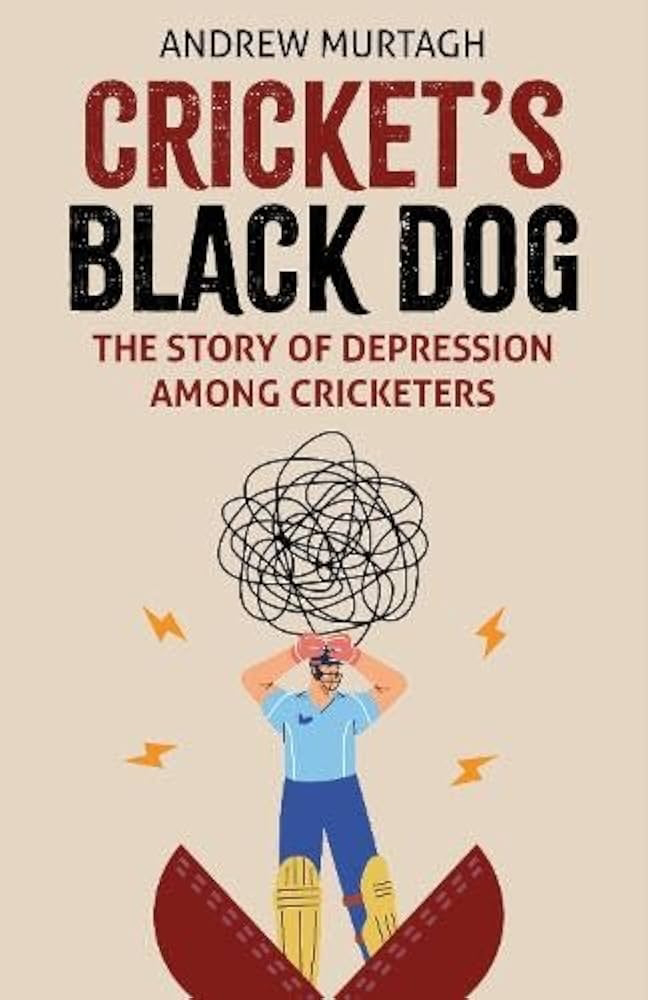Uncle of the long-serving Middlesex opening bowler, Tim, he was released by Hampshire in 1978, subsequently becoming a school teacher, then well-regarded writer and cricket historian.
I had no idea when I watched him - why would I, any more than anyone else - that he was facing mental health challenges, that continued through his retirement.
This book, like Luke Sutton's Back From The Edge which he often refers to, despite somewhat surprisingly admitting he had never heard of the former county stalwart, is not an easy read. How can it be, when it documents the challenges he has faced, his times in The Priory, the torment faced on at times a daily basis?
There are studies of well-known former players who faced similar challenges throughout their careers, far too many taking their own lives when they could no longer cope with their life without the game. There is an especially good in-depth look at Wally Hammond, a troubled soul and largely unpopular man, despite being one of the greatest players to play the game. He seemed to change in personality after the tour of the Caribbean in 1925-6 and there appears little doubt that the treatment he received for syphilis at the time was a contributory factor.
It is not new territory of course, the subject area covered admirably by David Frith in By His Own Hand, while David Foot revealed the real reason for Hammond's ill-health in his superb Wally Hammond: The Reasons Why.
The author doesn't come up with the answer to his central question - is cricket to blame, or are cricketers more susceptible to clinical depression? Perhaps input from clinical psychologists may have got him closer, or perhaps there is no one answer to the question.
People's lives, circumstances and environments are all different and perhaps it is an unfortunate melting pot of these that causes someone, every now and again, to become the latest sad statistic.
What it should do, however, is again make supporters, especially those happy to anonymise their unpleasant output on social media, to be more aware of what they say. You never know the challenges faced by those that we watch, admire and hero worship, but a greater appreciation that they are no different to so many others would do no one any harm.
This is certainly a book that is well worth reading.
Cricket's Black Dog: The Story of Depression Among Cricketers is written by Andrew Murtagh and published by Pitch Publishing

The Harold Gimblett book Tormented genius of cricket, also by David Foot is a sad read but very well written. I think the uniques nature and pressures of cricket play some part. I echo your thoughts about unkindness in sport in general. Criticism is fine but it should never be personal or over the top.
ReplyDeleteThanks for the review. I also recall the author from the 70's!
Yes Gimblett was another tortured soul, of far too many. I remember the deaths of Mark Saxelby and David Bairstow especially shocking me, all so very sad
DeleteI played club cricket with, and was captained by, Andy Murtagh just after he left the pro game. He was a one of the genuinely good guys and great fun to be with as well as being a rather useful cricketer at premiership club level! Should I be surprised that he suffered from depression because I had absolutely no idea that he did? Maybe part of the process is being able to hide the problem(s)....I shall hunt down a copy of this book.
ReplyDelete